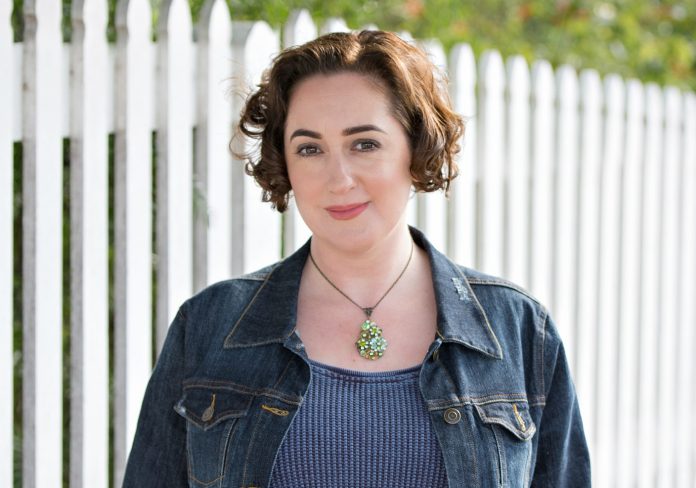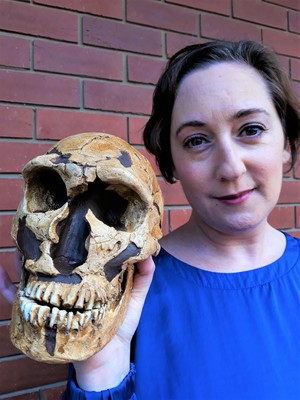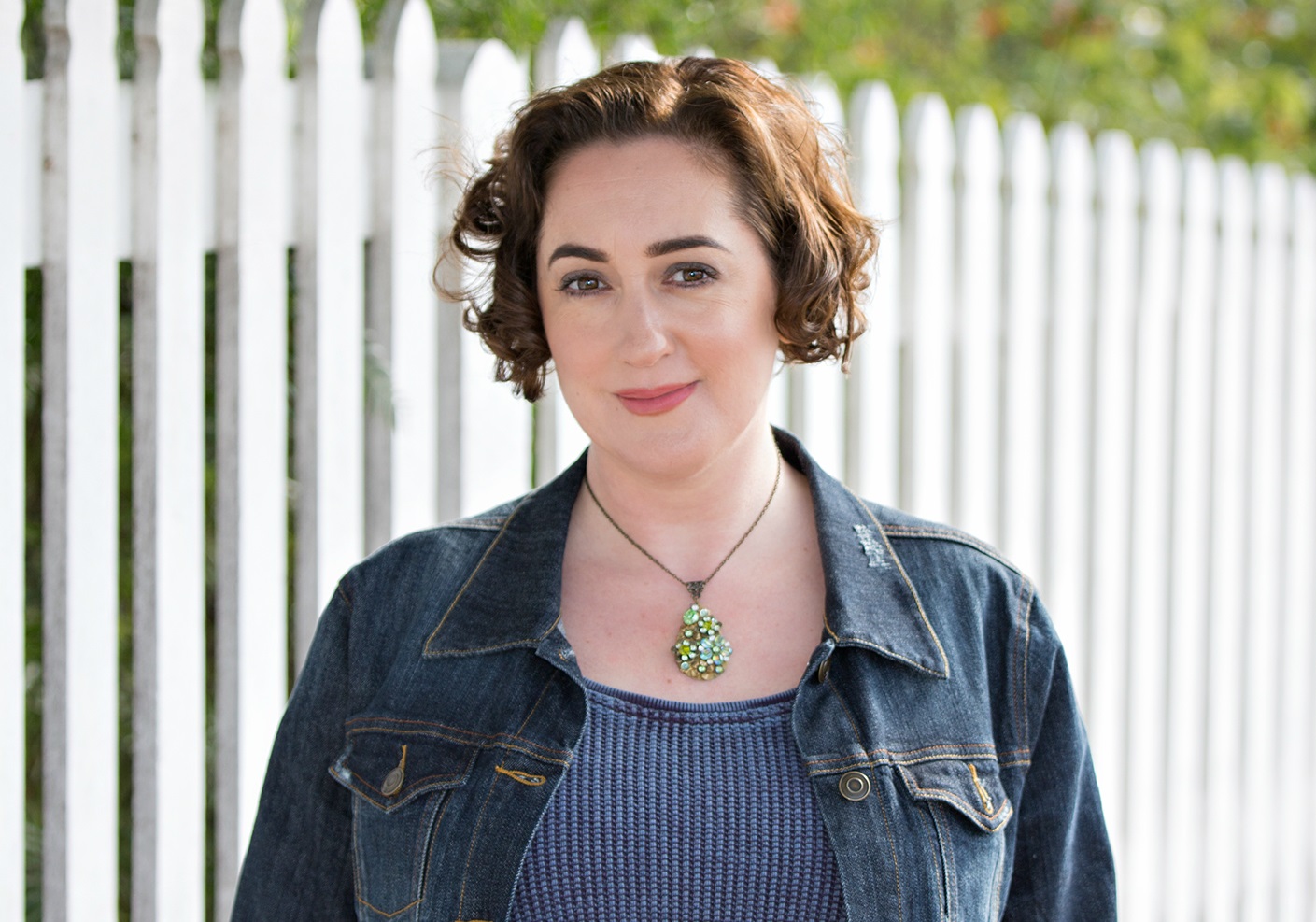A lecture on cloning neanderthals inspired Melissa Ferguson’s dystopian novel The Shining Wall, the Newtown mother-of-two and debut novelist says.
The 44-year-old created her fictional world with cloned ‘neandertals’ after hearing a Harvard geneticist explain how the technology could soon become reality, she said.
“After I heard that, I became interested about … what a cloned neanderthal would be like, how we would treat them, how we would employ them and how we would bring them back.”
The research assistant signed a contract for the book in April 2018 and her publisher has printed about 1800 copies so far since the release earlier this year.
“The publisher’s talking about printing more so that’s a good sign,” she said.
“It’s very exciting. It was something I had been working really hard towards and was a dream come true.”
Melissa overcame setbacks to become a first-time novelist, including a failed attempt at publishing a similar novel in 2017.
While unsuccessful, that manuscript got her “a foot in the door” with her publisher.
“That point where you get so close but just miss out is where a lot of people give up,” she said.
“But that’s when you’ve got to keep trying.”
And a minor character from her first attempt, an orphan named Alida, became the protagonist of The Shining Wall, Melissa explained.
The book tells of a corporate-run city, where the wealthy push health and longevity to extremes and surround themselves with a shining metal wall.
“It divides the demi-settlements from the more privileged people inside,” Melissa said.
Outside the wall Alida struggles for survival in slums with her five-year-old adopted sister Graycie, after losing her mother to a preventable disease.
Employed by a local gangster as a sex worker, she is smuggled into the city to give rich citizens a ‘Cinderella experience’.
She meets exiled neandertal clone Shuqba, who has failed to adhere to the impossible standards for her species within the city.
The two become friends and Shuqba soon faces a choice – offer Alida a lifeline or betray her.
“There’s issues of fertility and surrogacy in the book too,” Melissa said.
“I just wanted to tell this story and hopefully enough people will like it that I will be able to tell more stories that people are interested in.”
Melissa began creating stories as a child but writing took a backseat to working in brain tumour and blood cancer labs.
“I don’t have any formal writing qualifications; it’s always been a hobby of mine,” she said,
But she got back into writing after doctors diagnosed her with Hodgkin’s lymphoma, six months after giving birth to her first child at 30.
“I went on maternity leave from that job,” she said.
“(Going) through that experience gave me a little bit more insight into what (patients I worked with) had gone through.”
She took a short evening course in creative writing, which began her path to being an author.
Melissa admitted writing The Shining Wall was sometimes gruelling, especially in the middle of the book writing “one scene at a time”.
“I wrote my book one hour a day,” she said.
“The thing I’ve learnt about writing is you just need to keep trying.”









